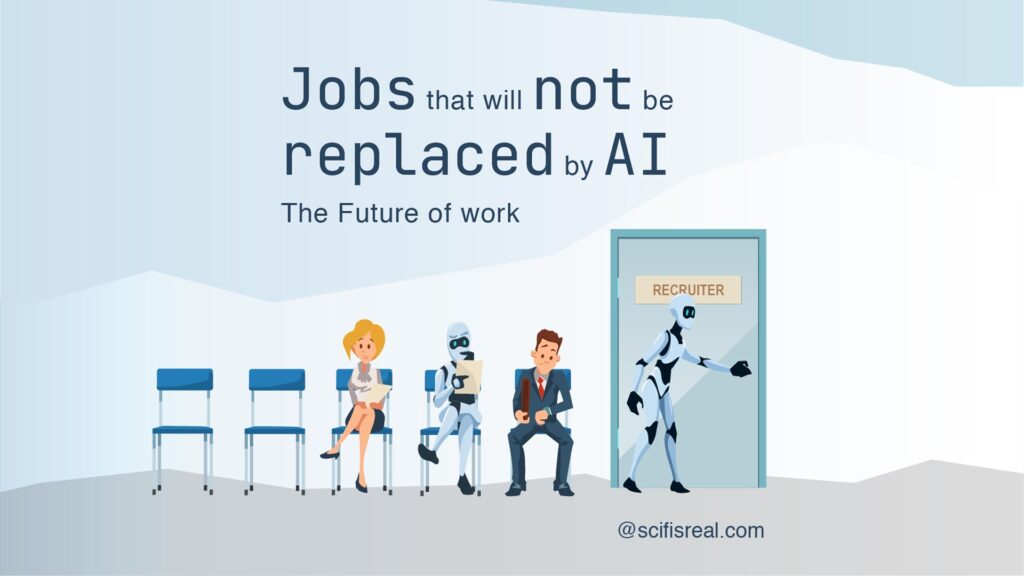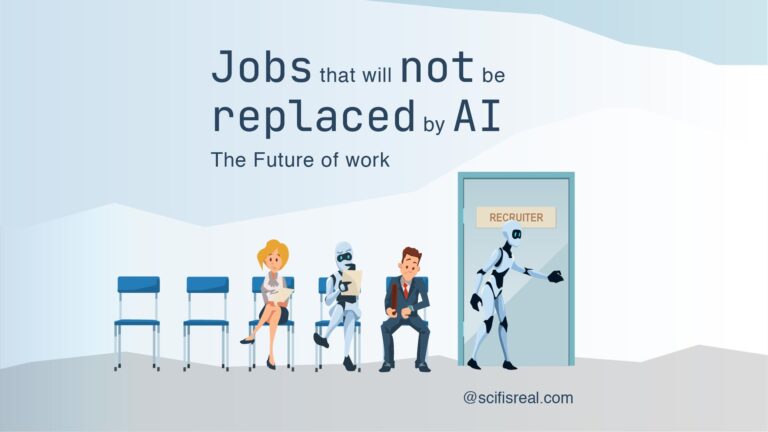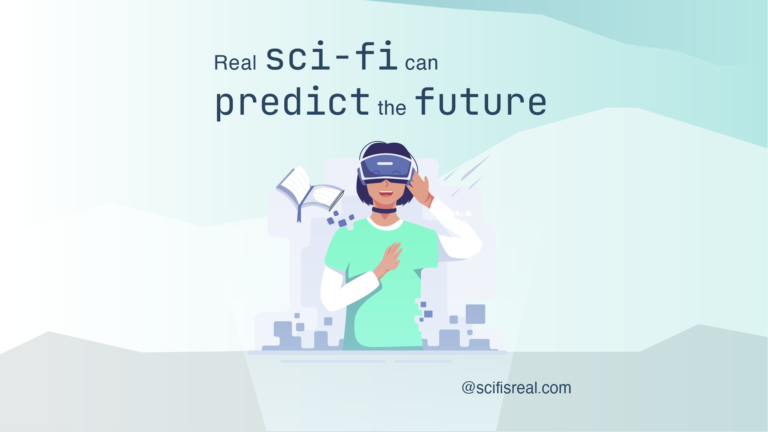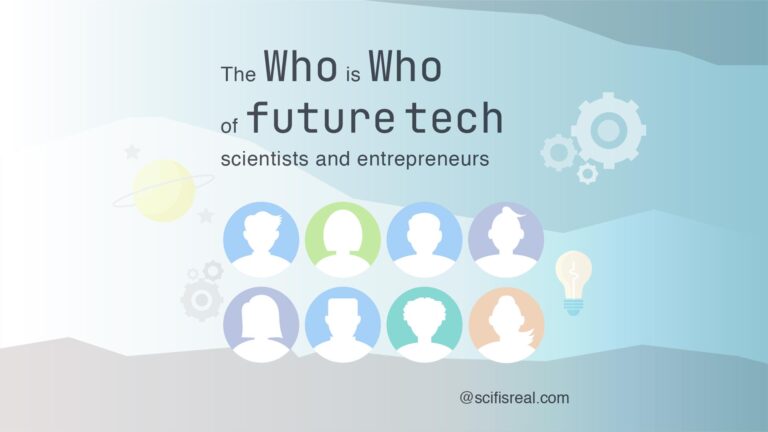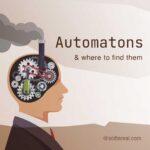27 Jobs that are Replaced by Machines: The Future of Work
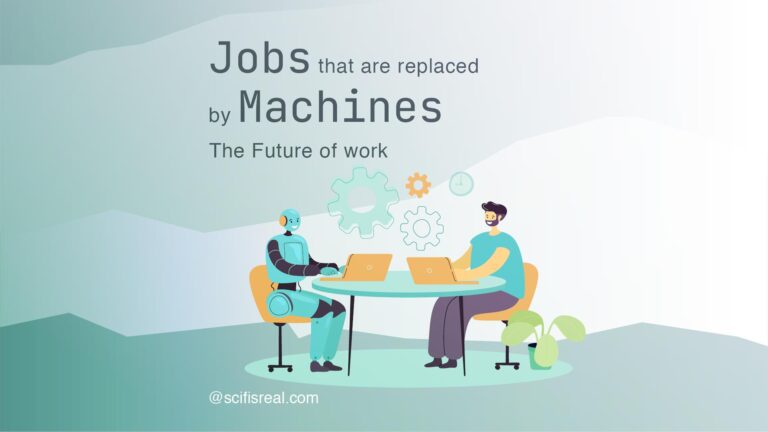
With the advent of artificial intelligence and other technological advancements, many jobs that have been around for centuries are becoming obsolete. The future of work is changing. It seems that jobs that are replaced by machines will be a new factor we will have to consider for remaining in demand on our career path. Learn more about the future of work and how it will impact our careers in the future.
What is artificial intelligence, and what are its implications for the future of work?
Artificial intelligence is a branch of computer science that deals with the creation of intelligent agents, which are systems that can reason, learn, and act autonomously. This technology is becoming increasingly prevalent in our society, and its impact on the workforce is significant.
While there are jobs that will not be affected by AI or even benefit from it, there are others that should raise our concerns. One of the most important implications of artificial intelligence is that it will cause many jobs to become obsolete. As artificial intelligence systems become more sophisticated, they will be able to do many jobs that have traditionally been done by human beings. This could lead to mass unemployment and a decrease in the demand for certain skill sets.
What are some traditional jobs that are replaced by machines?
There are many jobs that are already being replaced by machines. According to an Oxford University study of 702 common occupations, some jobs are more at risk of being replaced. For example, automated teller machines (ATMs) have replaced bank tellers, self-checkout kiosks have replaced cashiers, and agricultural robots have replaced farm workers. As artificial intelligence systems become more advanced, they will be able to do even more jobs that have traditionally been done by human beings.
Here is a list of 27 jobs that are being replaced by technology:
1. Cashier
Self-checkout kiosks are one of the primary ways that technology is replacing human cashiers. These kiosks allow customers to scan and bag their own items, which reduces the need for human cashiers. In addition, some stores are using artificial intelligence systems to handle tasks such as pricing and inventory management, which were done by humans and are among the traditional jobs that are replaced by machines.
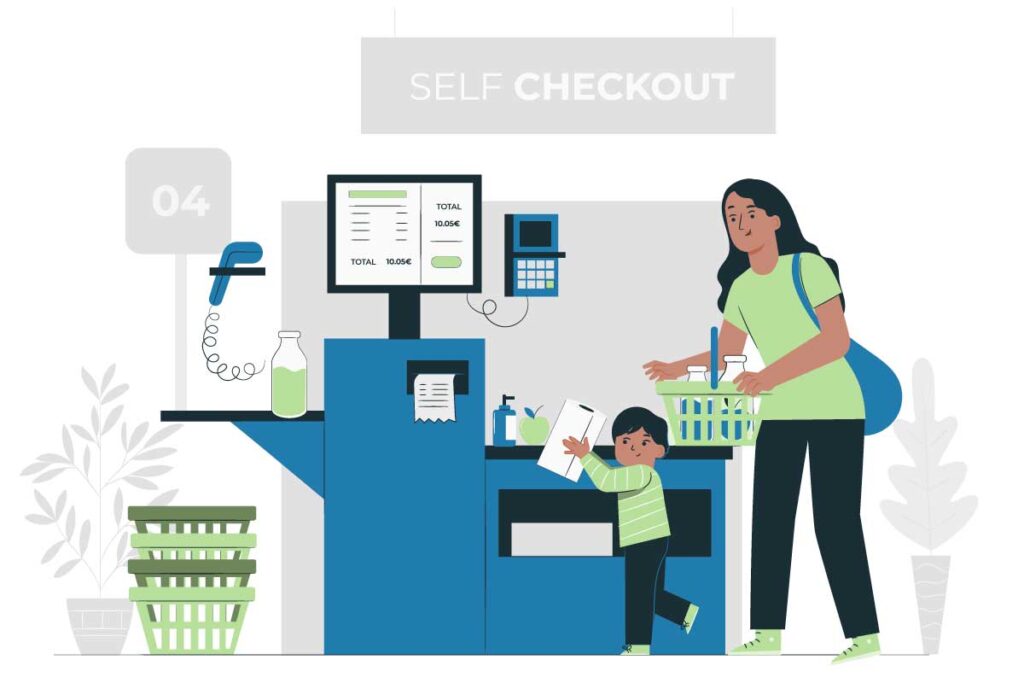
2. Bank teller
ATMs are one of the primary ways that technology is replacing human bank tellers. ATMs can handle a wide range of transactions, including deposit taking, account balances, and even loan applications. In addition, many banks are now using artificial intelligence systems to handle tasks such as customer service and fraud detection, which were traditionally done by human tellers. Also, the widespread use of e-banking and electronic transactions with cards, contactless payment, and NFC has decreased the demand for tellers in banks. Bank clerk jobs that are replaced by machines are a reality as people are getting used to cashless transactions.
3. Accounting clerk
Technology is changing the accounting profession in many ways. For example, artificial intelligence systems are being used to automate tasks such as bookkeeping, invoicing, and tax preparation. In addition, many companies are now using cloud-based accounting software, which allows employees to access financial data and applications from anywhere in the world. This has led to a decrease in the need for on-site accounting clerks.
4. Data entry worker
With the advent of artificial intelligence and machine learning, many jobs that involve data entry are being replaced by machines. For example, there are now software programs that can automatically fill out forms and generate reports based on data that is inputted into the system. In addition, some artificial intelligence systems are able to learn new tasks by observing human workers. This means that they can be trained to do jobs that are currently done by human workers.
5. Telemarketer
The Telemarketer job is being replaced by artificial intelligence because it can make automated calls to customers and prospects and deliver a pre-recorded message. This is more efficient than having a human telemarketer make the call. In addition, artificial intelligence systems can track customer interactions and gather data that can be used to improve the effectiveness of marketing campaigns.
6. Travel agent
The human travel agent job is being replaced by technology because artificial intelligence systems are able to research trip options and book travel arrangements much more quickly and efficiently than humans. In addition, artificial intelligence systems can provide personalized recommendations to customers based on their preferences and past behavior.
7. Insurance underwriter
The insurance underwriting job is being replaced by artificial intelligence because it can quickly and accurately assess risk factors and make decisions about coverage. In addition, artificial intelligence systems can process a large volume of data in a short amount of time, which is necessary for the insurance industry.
8. Stockbroker
A stockbroker is a licensed professional who buys and sells stocks and other securities on behalf of clients. A human stockbroker can be replaced by artificial intelligence for a number of reasons. First, artificial intelligence systems can execute trades faster than humans. Second, artificial intelligence systems can access a wider range of data sources when making investment decisions. Third, artificial intelligence systems can manage a portfolio of stocks more effectively than human stockbrokers.
9. Loan officer
Artificial intelligence systems can gather and analyze data more quickly than humans. Second, artificial intelligence systems can make decisions about loan applications without the need for human input. Third, artificial intelligence systems can provide personalized recommendations to customers based on their financial history and credit score.
Loan officers are not the only ones whose jobs are being replaced by artificial intelligence. Here are some other examples:
10. Paralegal
AI systems can conduct legal research more quickly and accurately than human paralegals. Second, artificial intelligence systems can draft documents such as contracts and pleadings with minimal human input or error. Third, artificial intelligence systems can manage large volumes of data more effectively than humans.
11. Personal assistant
A personal assistant can be replaced by artificial intelligence for a number of reasons. First, artificial intelligence systems can manage calendars and schedules more effectively than humans. Second, artificial intelligence systems can handle email and other forms of communication on behalf of the user. Third, artificial intelligence systems can provide personalized recommendations to the user based on their preferences and past behavior and can, in a way, predict the needs of the user. A personal assistant is among the more traditional jobs that are replaced by machines
12. Shop assistant
Artificial intelligence systems can handle customer inquiries more effectively than humans. Second, artificial intelligence systems can provide personalized recommendations to customers based on their preferences and past behavior. Third, artificial intelligence systems can process transactions more quickly and accurately than humans.
13. Telephone operator and switchboard operator
Have you noticed how rare it is nowadays to get through to a real person when calling a call center? More and more companies are utilizing AI to handle the workload of incoming calls. The reasons are many. First, artificial intelligence systems can handle customer inquiries more efficiently than humans by providing more accurate information and faster service. Furthermore, artificial intelligence systems can provide personalized recommendations to customers based on their preferences and past behavior. And lastly is cost-efficient when artificial intelligence systems can process transactions more quickly and accurately than humans.
14. Film developer
The film developer job went obsolete with the adaptation of digital photography and video. Gone are the days that one would anxiously wait for films to be developed. Now it is all done through machines in a matter of seconds.
15. Typesetter
There was a time when this was a difficult and well-paying job. But why is the typesetter job dying? With the advancement of technology, there are now many software programs that can do the work of a typesetter with ease. A human typesetter is no longer needed to manually input text into a computer program or to operate a printing press.
16. Mail carrier
The job of a mail carrier is becoming obsolete due to the increasing use of email and other forms of electronic communication. In addition, many businesses are now using automated systems to handle their mail. As a result, there is less need for human mail carriers.
17. Librarian
The librarian job is less in demand due to the widespread use of electronic books and other resources. In addition, many libraries are now using automated systems to manage their collections. As a result, there is less need for human librarians, and is one of the traditional jobs that are replaced by machines.
18. Newspaper delivery person
The job of newspaper delivery person is a past job due to the increasing use of electronic newspapers and other news sources. In addition, many newspapers are now using automated systems to deliver their content. As a result, there is less need for human newspaper delivery people as there used to be in the past.
19. File clerk
The job of file clerk is one of the jobs that are replaced by machines due to the increasing use of electronic filing systems and computers. In addition, many businesses are now using automated systems to manage their files which provide many more benefits to storing and accessing physical copies of files. As a result, there is less need for human file clerks. Filing clerk was one more entry-level job that is slowly dying as it is one of the jobs that are replaced by machines
20. Typist
Why is the human Typist job no more needed? With the adaptation of word processing software, there is no longer a need for someone to type up a document manually. All of the work can now be done on a computer with the use of a keyboard or even better, text-to-speech software offers a hands-off way of creating documents.
21. Video rental store clerk
The job of video rental store clerk is no longer needed as people are now streaming movies and tv shows online. With the click of a button, you can have instant access to any movie or show you want to watch without having to leave your house or wait in line.
22. Photocopy machine operator
The job of photocopy machine operator is among the jobs that are replaced by machines. A photocopy machine operator is no longer needed as people are now using digital scanners and email to send documents. With the click of a button, you can scan a document and email it to anyone in the world without having to leave your desk or make copies.
23. Assembly line worker
The job of assembly line worker is no longer needed as machines are now doing the work. It is among the entry-level, low-skill jobs that are replaced by machines. With the help of robots, factories can now assemble products faster and more efficiently than humans. In addition, robots don’t get tired and can work for long hours without a break.
24. Journalist
The journalism profession is being transformed by artificial intelligence in a number of ways. First, AI systems are being used to generate news stories. For example, the AP News Agency uses artificial intelligence to write thousands of short news stories each day. Second, artificial intelligence is being used to curate and personalize news content for individual users. Third, artificial intelligence is being used to help identify fake news and disinformation.
25. Recruiter
Recruiters are responsible for finding and screening candidates for open positions. Artificial intelligence systems can be used to assist in the recruiting process in a number of ways. First, artificial intelligence systems can post job openings on behalf of the recruiter. Second, artificial intelligence systems can search through resumes and identify candidates that meet the specific criteria for the open position. Third, artificial intelligence systems can conduct initial phone screens with candidates to save time for the recruiter.
26. Watch repairer
The job of a watch repairer is one of the jobs that are replaced by machines as most watches are now made with quartz movements that do not need to be repaired. In addition, many people are now using digital watches that do not require repairs. In addition, many watches are now made to be more durable and require less maintenance. As a result, there is less need for human watch repairers.
27. Ice delivery person
The job of an ice delivery person is no longer needed as most people now have electric refrigerators that can make their own ice. There was a time when refrigerators required ice to operate. Electric refrigerators no longer need ice to operate. As a result, there is less need for human ice delivery people.
So there you have it: 27 jobs that are replaced by machines
How will artificial intelligence impact jobs that have been around for centuries?
The impact of artificial intelligence on jobs is not limited to those that are being replaced by machines. Many jobs that have been around for centuries will also be impacted by artificial intelligence. For example, lawyers will use artificial intelligence to help them research cases and write documents. Doctors will use artificial intelligence to diagnose diseases and recommend treatments. And teachers will use artificial intelligence to create personalized learning experiences for their students.
What are some jobs that will be created by artificial intelligence?
In addition to causing many jobs to become obsolete, artificial intelligence will also create new jobs. For example, artificial intelligence will require new types of engineers to design and build the systems. There will also be a need for new types of data scientists to analyze the large amounts of data that will be generated by artificial intelligence systems. And there will be a need for new types of educators to teach people how to use artificial intelligence systems.
Are there any professions that are immune to the effects of artificial intelligence?
There are a few professions that are immune to the effects of artificial intelligence and the effect of technology. These include jobs that require human interaction, such as social workers and counselors and jobs that require creative thinking, such as artists and writers. However, even these jobs will be impacted by artificial intelligence in some way. For example, social media platforms that use artificial intelligence will be able to target ads to users based on their interests, and artificial intelligence can be used to generate ideas for writers. It is, however, apparent that not all jobs that are replaced by machines will become obsolete as there is a number of people who still require human interaction to feel assured they got the best service.
What can we do to prepare for the changes that artificial intelligence will bring to the workforce?
There are a few things that we can do to prepare for the changes that artificial intelligence will bring to the workforce. First, we need to educate ourselves about artificial intelligence and its implications. Second, we need to learn new skills that will be in demand in the future. And third, we need to be flexible and adaptable so that we can adapt to the changes that artificial intelligence will bring.
Artificial intelligence is going to have a major impact on the workforce. Many jobs that have traditionally been done by human beings will be replaced by machines. This could lead to mass unemployment and a decrease in the demand for certain skill sets. We need to educate ourselves about artificial intelligence and its implications so that we can be prepared for the changes that it will bring.
How will artificial intelligence change the way we live and work in the future?
As artificial intelligence becomes more advanced, it is taking over more and more jobs that have traditionally been done by human beings. For example, cashiers, bank tellers, and accounting clerks are all positions that are being replaced by machines. Even jobs that require human interaction, like telemarketers and travel agents, are at risk of being taken over by artificial intelligence.
In the future, it is likely that even more jobs will be replaced by artificial intelligence. professions like insurance underwriters, stockbrokers, loan officers, and paralegals could all be obsolete within a few decades. And jobs that require creative thinking, like writers, artists, and musicians, could also be replaced by artificial intelligence.
What are your thoughts on the future of work? Will artificial intelligence cause mass unemployment? Or will it create new jobs that we cannot even imagine today? Share your thoughts in the comments below.
